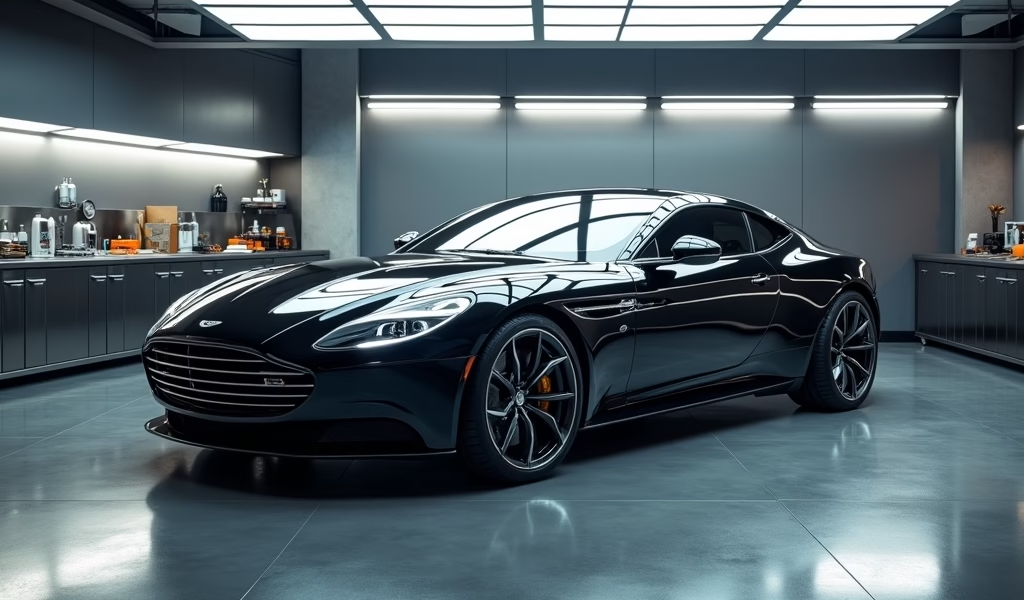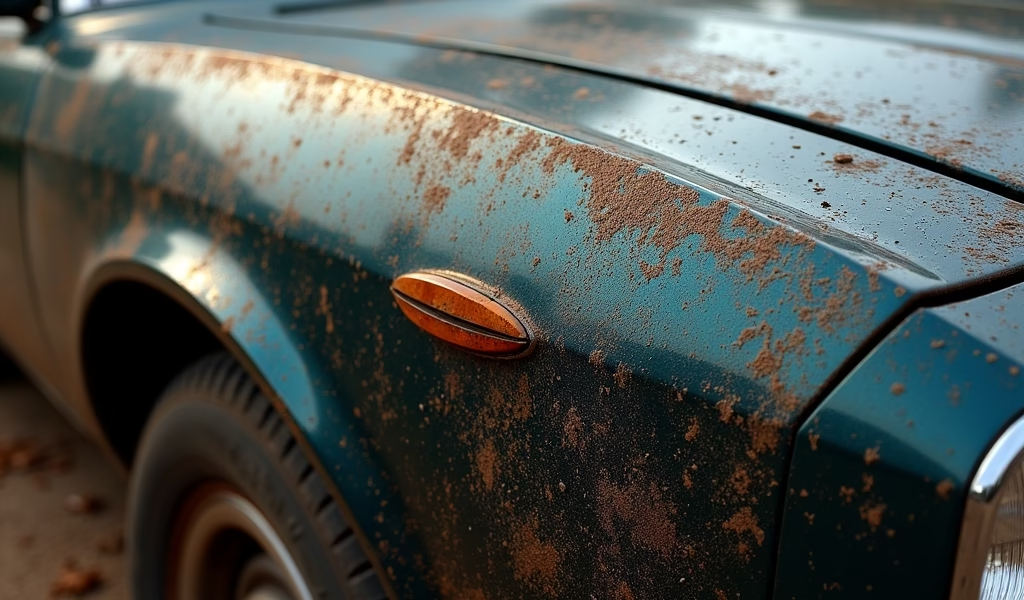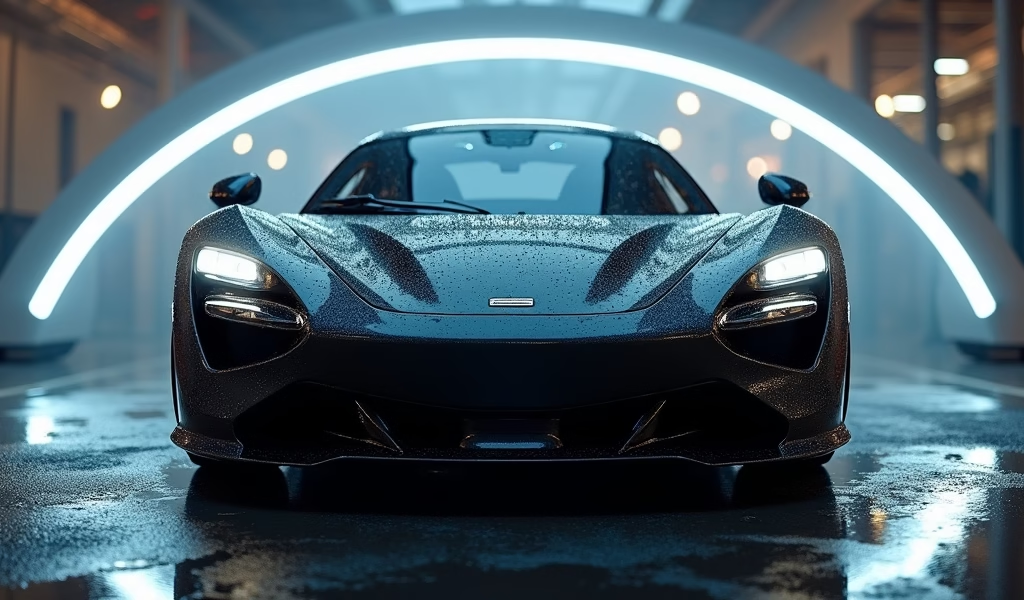Overview
This article provides seven professional car coating tips for Denver vehicle owners, covering selection of appropriate coating types (ceramic, graphene, or wax), proper surface preparation, optimal application conditions, professional techniques, curing processes, ongoing maintenance practices, and how to find qualified coating professionals. The guidance is specifically tailored to Denver’s unique climate challenges including high altitude, intense UV exposure, and seasonal weather conditions that affect both application and longevity of protective vehicle coatings.
Table of Contents
- Introduction
- Choose the Right Coating Type for Denver’s Climate
- Proper Surface Preparation is Everything
- Temperature and Environment Considerations
- Application Techniques from the Professionals
- Curing and Post-Application Care
- Maintenance Practices to Extend Coating Life
- Finding the Right Professional Coating Service in Denver
- Conclusion
- Frequently Asked Questions
Introduction
Denver’s stunning landscape comes with a price tag for your vehicle. From harsh winter road salts to intense summer UV rays at our mile-high altitude, your car’s exterior faces a constant barrage of environmental challenges. That gleaming showroom finish you admired when you first purchased your vehicle? Without proper protection, it’s fighting a losing battle against Colorado’s elements.
Professional car coating isn’t just another service to add to your automotive maintenance checklist—it’s essential armor in Denver’s climate. A quality coating creates an invisible shield that repels water, resists contaminants, and maintains that head-turning shine that makes you glance back at your vehicle after parking. At Knows Your Car, we’ve seen firsthand how proper coating can transform a vehicle’s appearance while extending its lifespan and preserving its value.
Ready to give your car the protection it deserves? Let’s dive into seven professional coating tips that will keep your vehicle looking spectacular through Denver’s four distinct seasons.
Choose the Right Coating Type for Denver’s Climate
Not all car coatings are created equal, especially when it comes to withstanding Denver’s unique climate conditions. The coating war typically comes down to three main contenders: ceramic, graphene, and traditional wax.
Ceramic coatings have revolutionized the car protection industry with their silicon dioxide-based formulation. Think of ceramic coating as a liquid glass that chemically bonds to your car’s paint, creating a hydrophobic surface that water simply slides off. With Denver’s unpredictable precipitation and frequent dust storms, ceramic coatings offer superior protection lasting 2-5 years.
Graphene coatings represent the newest technology, incorporating carbon nanostructures that create an even slicker surface than ceramic. What makes graphene particularly suitable for Denver? Its outstanding heat dissipation properties. When summer temperatures soar and UV intensity increases at our altitude, graphene coatings minimize heat absorption, reducing the thermal stress on your vehicle’s paint.
Traditional carnauba wax, while less durable (typically lasting only 2-3 months), offers a warm, deep shine that some purists still prefer. However, in Denver’s challenging environment, wax simply can’t provide the long-term protection most drivers need.
Cost comparison: While ceramic coatings ($800-1,500) and graphene coatings ($1,000-2,000) require a higher initial investment, their multi-year protection makes them more economical than quarterly wax applications ($100-200 each) in the long run.
As John, a Knows Your Car customer from Capitol Hill discovered: “After three harsh Denver winters with road salt destroying my previous car’s finish, I invested in ceramic coating for my new Tesla. Two years later, it still beads water like the day it was applied, even after those brutal February snowstorms.”

Proper Surface Preparation is Everything
The secret that separates amateur coating jobs from professional results lies largely in preparation. Even the most premium coating will fail if applied to an improperly prepared surface.
Professional preparation begins with a thorough washing using pH-balanced soap specifically designed for automotive finishes. But that’s just the starting point. Next comes clay bar treatment—a process that removes embedded contaminants invisible to the naked eye. Running your hand across a freshly washed car might feel smooth, but a clay bar reveals microscopic particles that would prevent proper coating adhesion.
Paint correction is the critical step many DIYers miss. This involves machine polishing to remove swirl marks, oxidation, and light scratches. In Denver, where vehicles are regularly subjected to airborne particulates and environmental fallout, paint correction isn’t optional—it’s essential.
Common preparation mistakes include:
- Skipping the decontamination stage
- Using improper washing techniques that introduce swirl marks
- Not removing previous wax or sealant layers completely
- Rushing through paint correction to get to the “fun part” of applying coating
At Knows Your Car, our detailing professionals spend approximately 80% of their coating service time on preparation alone. As our lead detailer often says, “The coating application is the dessert. Preparation is the entire meal.”
According to research from professional detailing experts, proper surface preparation can improve coating adhesion by up to 50%, directly impacting longevity and performance.
Temperature and Environment Considerations
Denver’s distinct seasons and altitude create unique challenges for coating application. Timing and environment can dramatically impact your coating’s effectiveness and longevity.
The ideal conditions for coating application in Denver include:
- Ambient temperature between 65-75°F
- Humidity levels between 40-60%
- No direct sunlight
- Dust-free environment
Given our climate, late spring and early fall typically offer the most consistent conditions. Summer applications require extra precautions due to higher temperatures, which can cause coatings to flash (cure too quickly before proper leveling), while winter applications may not cure properly due to cold temperatures.
Indoor application in a controlled environment is always preferred. The unpredictable nature of Colorado weather—where sunshine can quickly give way to afternoon thunderstorms—makes outdoor applications particularly risky. Professional detailers use temperature and humidity monitors to ensure conditions remain optimal throughout the application process.
Denver’s elevation also affects application techniques. At 5,280 feet, reduced atmospheric pressure can subtly alter how products behave. Professional applicators in Denver often adjust their techniques to account for our unique altitude effects, ensuring proper coating thickness and curing.
Application Techniques from the Professionals
Professional coating application is equal parts science and art. Here’s how the experts at Knows Your Car approach this precision process:
1. Section-by-section application
Rather than tackling the entire vehicle at once, professionals divide the car into smaller sections (typically 2×2 feet) to ensure thorough and consistent coverage.
2. Cross-hatch technique
Professionals apply the coating in a cross-hatch pattern, first horizontally then vertically, ensuring 100% coverage with no missed spots.
3. Timing is crucial
Most coatings need to “flash” (begin to cure) for a specific time before being leveled and buffed. Professionals use timers to ensure perfect leveling windows aren’t missed.
The tools professionals use include:
- Applicator blocks wrapped with specialized suede cloths
- Premium microfiber towels with specific GSM (grams per square meter) ratings for removal
- LED inspection lights to check for high spots
- Multiple light sources to examine for consistency
One of the most common DIY mistakes is applying too much product. Professional applicators understand that “less is more” when it comes to coatings. A coating that’s applied too thickly will develop high spots—areas where excess product creates visible imperfections that are extremely difficult to remove once cured.
As Mark from Denver’s Washington Park neighborhood learned: “I tried applying ceramic coating myself after watching some YouTube videos. Ended up with high spots I couldn’t fix. When I finally visited Knows Your Car, their technician explained that I had used about four times the amount of product needed. The difference in their application was night and day.”

Curing and Post-Application Care
The journey doesn’t end once the coating is applied. Proper curing is essential for developing the coating’s full protective properties and longevity.
In Denver’s climate, most ceramic and graphene coatings require:
- 24-48 hours protection from any moisture (including dew)
- 7 days before exposure to harsh detergents or chemicals
- 14-30 days for complete curing and maximum hardness
Our mile-high altitude creates interesting curing dynamics. The thinner air and typically lower humidity can actually accelerate initial flash curing but may extend the time needed for complete cross-linking of the coating’s molecular structure. Professional installers in Denver often adjust their curing recommendations based on these local conditions.
During the first week after coating application, avoid:
- Automatic car washes
- Driving on dirt roads or in heavy rain if possible
- Parking under trees where sap or bird droppings might fall
- Applying any other products to the vehicle’s surface
Many coating failures can be traced back to improper curing conditions. That’s why reputable coating professionals will provide detailed aftercare instructions specific to your coating type and our local environment.
Consumer Reports studies suggest that proper curing and aftercare can extend coating effectiveness by up to 40%, making this step just as important as the application itself.
Maintenance Practices to Extend Coating Life
A quality coating dramatically reduces maintenance requirements, but proper care will maximize your investment’s lifespan and performance.
In Denver’s unique environment, we recommend:
Washing frequency
Every 2-3 weeks in winter (to remove road salt) and every 3-4 weeks during other seasons. Use the two-bucket washing method with a pH-neutral car soap specifically formulated for coated vehicles.
Snow and ice management
Avoid using ice scrapers directly on coated surfaces. Instead, start your vehicle and allow defrosters to loosen ice before gentle removal. When possible, garage your vehicle during snowstorms to minimize exposure to road salt and magnesium chloride.
Complementary products
Use coating-specific maintenance sprays (sometimes called “toppers”) every 3-4 months to reinforce the hydrophobic properties and enhance protection. These products are designed to work with your base coating, not replace it.
Denver-specific considerations
Our high UV index and frequent spring pollen require attention to different threats throughout the year. During pollen season, rinse your vehicle more frequently to prevent particulates from bonding to the surface.
“I was amazed at how much easier maintenance became after getting my SUV coated at Knows Your Car,” shares Denver resident Sarah. “Even after driving through those muddy spring conditions we get when snow is melting, everything just rinses off with minimal effort. And during winter, road salt doesn’t stick like it used to.”
Finding a quality car wash with fair prices for maintenance washes between detailing appointments can also significantly extend your coating’s life and performance.
Finding the Right Professional Coating Service in Denver
With coating services ranging from budget-friendly to premium offerings, how do you select the right professional in Denver?
Look for these qualifications:
- Certified installers with formal training from coating manufacturers
- A proper indoor facility with controlled temperature and lighting
- Extensive preparation process that includes clay decontamination and paint correction
- Portfolio of previous work and genuine customer reviews
- Transparent pricing and clear explanation of coating options
- Warranty coverage with reasonable terms
Questions to ask potential coating professionals:
- “What steps are included in your preparation process?”
- “Which coating brands do you use and why?”
- “How long have you been applying this specific coating?”
- “What does your warranty cover and for how long?”
- “Can I see examples of vehicles you’ve coated that are similar to mine?”
In the Denver area, look for services that understand our specific climate challenges. Generic approaches that might work in humid coastal regions often fail to address Denver’s unique conditions of low humidity, intense UV, and dramatic temperature fluctuations.
At Knows Your Car, we’ve built our reputation on customizing coating recommendations based on each customer’s specific vehicle, usage patterns, and storage conditions. Our extensive knowledge of Denver’s climate allows us to provide tailored protection that genuinely works for local conditions.
For vehicles that need more than just coating, finding shops that offer comprehensive car wash detailing services can provide a one-stop solution for all your vehicle’s aesthetic needs.
Conclusion
Your vehicle represents a significant investment—financially and emotionally. In Denver’s challenging climate, professional coating provides essential protection that preserves both your car’s appearance and its value.
The seven tips we’ve explored—selecting the right coating type, thorough preparation, considering environmental factors, professional application techniques, proper curing, appropriate maintenance, and choosing the right service provider—create a roadmap for coating success in Denver’s unique environment.
Remember that while quality coating represents an upfront investment, it delivers significant long-term returns through reduced maintenance, preserved finish, and enhanced resale value. Your vehicle deserves this level of protection against Denver’s intense sun, winter road treatments, and varying weather conditions.
Ready to give your vehicle the protection it deserves? Visit us at knowsyourcar.com to learn more about our professional coating services tailored specifically for Denver vehicles. Your car knows when it’s being well cared for—and so will you, every time you see that water bead perfectly off your protected finish.
Frequently Asked Questions
How much does a professional ceramic coating cost in Denver?
Professional ceramic coating in Denver typically ranges from $800-1,500 depending on vehicle size and condition. The investment provides 2-5 years of protection against our harsh climate.
Can I apply a ceramic coating myself?
While DIY kits exist, professional results require specialized equipment and extensive preparation knowledge. Most DIY applications fail due to improper surface preparation and environmental control.
How long does a professional coating last in Denver’s climate?
Professional ceramic coatings typically last 2-5 years in Denver, while graphene may extend to 5-7 years. Proper maintenance and limiting exposure to extreme elements can maximize longevity.
What’s the best time of year to get a coating in Denver?
Spring and fall offer ideal temperature and humidity conditions for coating application in Denver. These seasons provide the moderate 65-75°F temperatures that ensure optimal curing.
How soon after coating can I wash my car?
Wait at least 7-14 days before washing your newly coated vehicle, and use only pH-neutral car soap. During the first two weeks, avoid automatic car washes and harsh chemicals completely.


Pingback: Best Omaha Car Wash: 5 Proven Care Tips - knowsyourcar.com